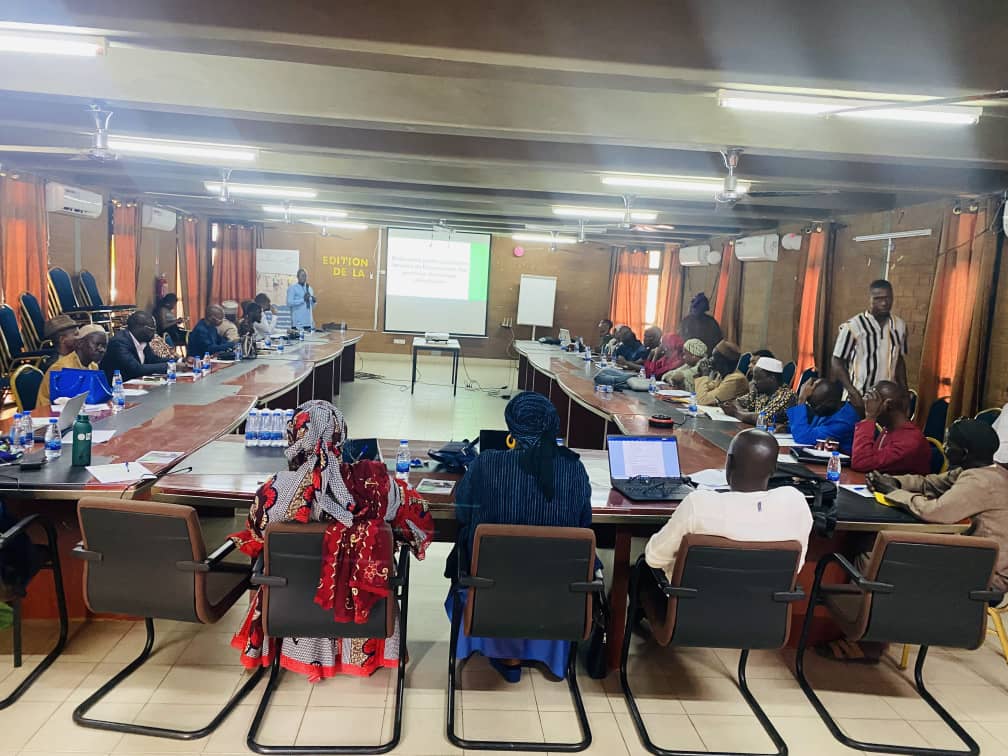
Finance and insurance of disaster risks in a context of climate change: Mechanisms unknown to stakeholders.
Over the years, it has become clear that traditional disaster response financing mechanisms – whether national contingency funds, humanitarian aid or loans – are no longer adequate to address the increasing frequency and intensity of extreme climate events. The latest IPCC assessment report (AR6, 2019) clearly confirms the climate impacts on the activities of local communities that are increasingly exposed and vulnerable. From rising sea levels and land salinization to high rainfall variability, these climate impacts are significantly transforming the environment and living conditions of several agrarian communities around the world, including in Senegal.
On June 11, 2024, a decentralized national workshop on climate finance and disaster risk insurance was held to address a pressing issue: disaster risk finance and insurance in a context of climate change that increases the vulnerability of peasant communities. The meeting brought together a wide range of state and non-state actors, aware of the urgent need for collective action to protect local populations, particularly those living in the Senegal River Valley, from the devastating effects of climate change.
In this context, climate finance and risk insurance (conventional and index-based) appear to be essential elements for strengthening the resilience of vulnerable populations. However, these mechanisms remain largely unknown to local actors, particularly those on the front lines of climate disasters. The Saint-Louis workshop aimed to fill this gap by informing and training participants on the different mechanisms and instruments available, while encouraging the sharing of experiences and the implementation of adapted local solutions.
The consultation was part of the Multi Actors Partnership (MAP) project implemented by ENDA ENERGIE. This project, which is in its second phase, aims to create a multi-stakeholder dialogue framework to discuss issues of climate finance, insurance and climate disaster risk management.
One of the particularities of this workshop was its decentralized dimension. Indeed, it made it possible to bring discussions and strategies developed at the macro level closer to local realities. Participants from the public, private, civil society and research sectors were able to share their experiences and specific challenges, while exploring the opportunities offered by climate finance mechanisms.
The workshop highlighted the need to adapt climate finance mechanisms to local realities. For example, indicative insurance, presented as a solution to protect farmers against losses related to climate hazards, requires that local actors be informed and trained on its operation and access.
The meeting also highlighted the importance of local adaptation initiatives. In a context of limited financial resources, it is necessary to support solutions developed by communities, whether in land management, water resource protection or economic diversification, because they strengthen resilience to climate disasters.
Another key point discussed was the role of non-state actors in the governance of climate finance mechanisms. Although they are often the first to respond to crises, their participation in the definition and management of climate finance strategies remains marginal. Discussions focused on strengthening their involvement, particularly through advocacy for more inclusive and transparent governance of climate funds.
The Saint-Louis workshop was a significant step forward in the fight against the effects of climate change in Senegal, by bringing together various actors around climate finance and risk insurance. It laid the foundations for a more coordinated and effective response to climate disasters.
The discussions highlighted the urgency of integrating climate finance mechanisms into national development strategies, while adapting them to local realities. The cumulative involvement of non-state actors is essential to ensure the effectiveness and sustainability of these mechanisms. Ultimately, this workshop raised awareness among participants on the challenges of climate finance and strengthened their commitment to building sustainable resilience in the face of future climate challenges.
